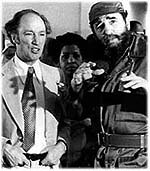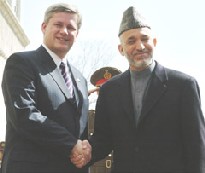Its a race between the back room boys candidate Ignatieff and Rae. No other Liberals need apply.
Ignatieff remains the voice of the right wing of the party, apparently Rae can mobilize the progressive wing at least in Toronto. While Laxer claims Kennedy has sold more memberships, that merely places him as King Maker, not a contender. Kennedy is dull, dull, dull as a candidate.
Rae has been underestimated because of the debacle of his NDP government in Ontario. And while the Liberal base is strong in Ontario, it is a National Leadership race. And the only thing that wins such a race is money. And the Liberals are all about money. Grassroots support is nice rhetoric, but its cold hard cash that buys, err...wins races.
So it behooves me to ask the remaining Liberal Leadership candidates to do us all a big favour; quit. This is a two man race, lets get it on before December. How about doing it in September, so we can have a nice fall election. Huh, how about it?
Find blog posts, photos, events and more off-site about:
Laxer, Liberals, Ignatieff, Rae, Leadership, Canada, politics


